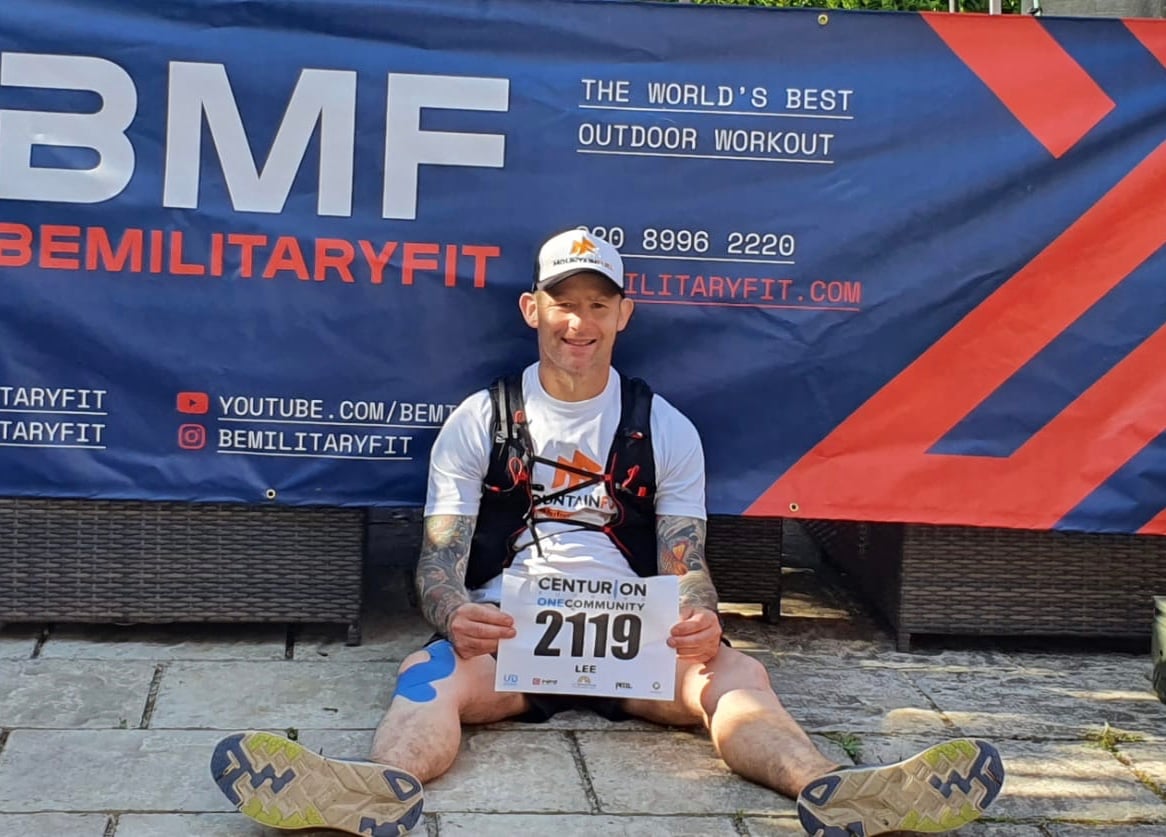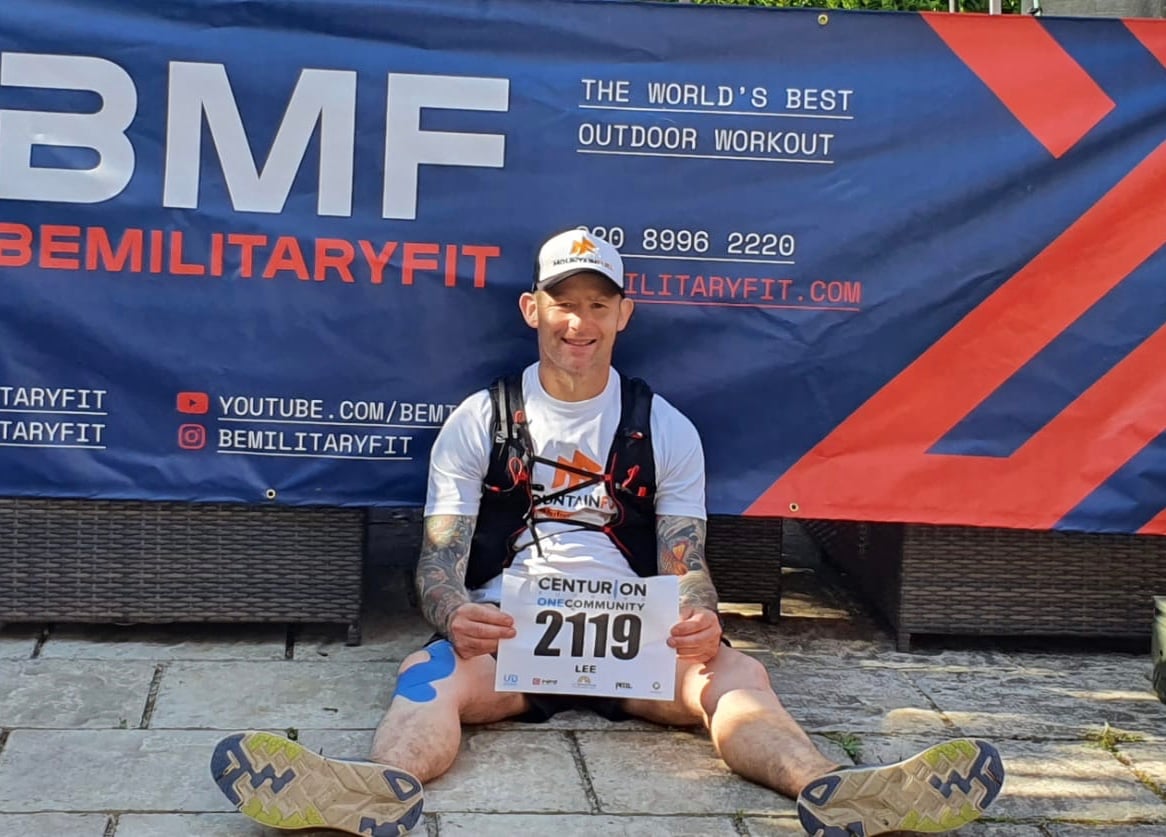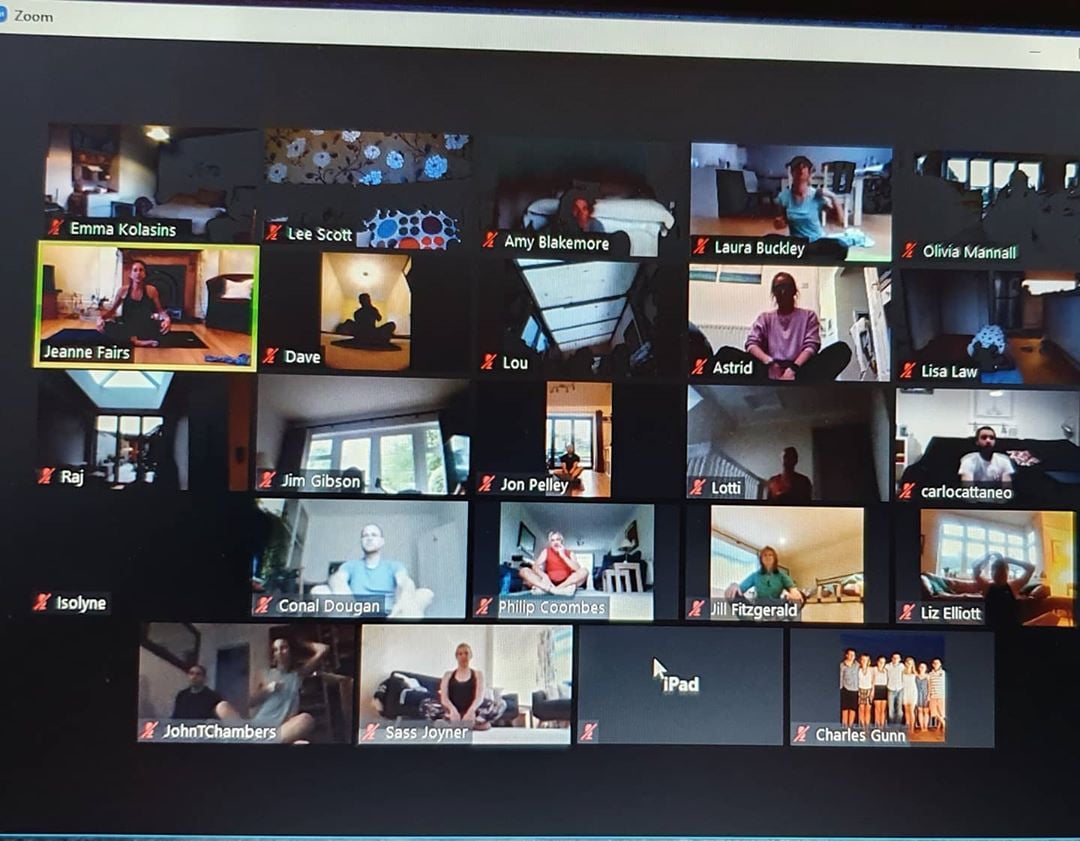
Long distance running advice from BMF ultra marathon runner – Lee Scott
June 3, 2020
Topics: BMF AT HOME, Nutrition & Mental Wellbeing, Fitness
Fancy a new challenge? Or maybe you just want to improve your level of fitness? Many of you may be using the 2020 lockdown period to train for a long distance running event.
Take a look at the advice below from our Bristol Instructor/Franchise Owner - Lee Scott.
Lee Scott has worked in the fitness industry for 20 years as a Personal Trainer and Sports Therapist. Lee previously served in the armed forces as an Army Physical Training Instructor. He joined BMF in 2010, he is inspired by the dedication and enthusiasm that the members give at every session.
“Seeing members progress through their fitness journey and see their confidence grow is a truly amazing thing to see. Whatever your goals are, we will be with you every step of the way.”
Outside of BMF, Lee's passion is running and he regularly competes in ultra-marathons. Lee recently completed a 100-mile ultra-marathon, whilst in lockdown to raise money for the Royal Marines Charity.

💯 MILES UNPREPARED!
The last time I completed 100 miles was in 2016, and I have dropped out of a few hundred since with recurring injuries - This race was never going to go well!
6 weeks ago, I contracted what my GP has put down to be COVID-19 and this lasted 3 weeks. I could barely demonstrate an exercise without being out of breath. Week 4, I managed to go out and do a few walk/runs 3 to 4 milers and for some reason the weekend of week 5 I ran a half marathon (what was I thinking). In that week I spotted the Centurion running ONE event where you could run from 5 k to 100 miles and you had the choice to spread the distance out over 6 days. Why I chose 100 miles in one go I'll never know, as I'm not really fit enough for 10k let alone 100miles.

2 things kept me going through this gruelling run:
1: The BE MILITARY FIT - BRISTOL online classes which over the last 2 weeks has built up my strength and improved my cardio.
You can sign up for your first FREE session here - http://signup.bemilitaryfit.com
2: My choice of fuel - MOUNTAINFUEL
BMF members will receive a discount with Mountain Fuel using the code BMFBRISTOL15
Over the run I used:- Raw Energy drink
- Sports Jelly - I every 60 minutes
- Breakfast Meal x 1
- Chocolate Recovery x 1
- Half of a orange and Turmeric flap Jack
Other foods for fuel:
- 2 x pasties
- 4 slices of Emmental cheese
The run was a disaster from the start! I wasn't feeling 100% before I set off at midnight on the 25th and had stomach issues all night which meant I wasn't fuelling. Thankfully on the Monday morning my stomach settled down and I was able to take on fuel.
In the past I've had gastroc tendonitis in my left knee and it came back around 20 miles. This caused pain for the rest of the run and I wasn't able to fully straighten my left leg.
The sun ☀️ Two days a blistering heat wasn't what I needed but the elements are things you have to try deal with during events. On day two I ran 15 miles in the sun and for the last 10 miles I took refuge in Blaise where I knew it would be shaded.
I was miles behind the pace I wanted to run at and sometimes couldn't run at all as my legs hurt so much, but anyone who has done a ultra-marathon will tell you that whether you are walking or running you have to keep moving forward - forward relentless progress.
On the second day after a couple of hours rest and elevating my legs I left the house determined to get the last 25 miles done and for the first 10 miles I was running really well - I even managed 10 miles in 2.15mins. The heat then came and it was time to hit the trails. My last 25 miles was done in 6hrs 18mins and from miles 11- 25 was run/walk run/walk repeat.
Thank you for all the amazing donations to THE ROYAL MARINES CHARITY and the words of encouragement throughout the 100 miles.
To support the Royal Marines you can donate via this link: www.justgiving.com/fundraising/BMFBRISTOL
CONCLUSION: Don't be like Lee! Train for events!
Click to see Lee's 99th mile video!
#IAMBMF
TRAINING TIPS FROM LEE SCOTT
GOAL SETTING
Make sure the race you choose is within your capability. You'll need time, dedication and motivation when training for a marathon or ultra-marathon, as it will take up a lot of your time.
WEATHER
Think carefully about the weather you have to train and race in! If you don’t like the cold and dark, then don't book an end of winter or early spring race.
CROSSTRAINING
Once or twice a week add a cross training/strength session into your programme. This will help you no end in the later stages of a race.
DON'T SKIP A REST DAY
Rest is as important as a training session when training for a long-distance event. Your body needs time to repair for the next session, so don’t skip it.
INCREASING YOUR MILEAGE
Don't rush the miles! A good rule is to increase your long runs by 1 or 2 miles a week.
WALK BREAKS
When breaking into high miles add some walk breaks to give yourself a rest. Many ultra-marathon runners will run the flat and downhill sections and walk up the long hills.
KEEP FUELLING
Attempt to take on fuel every 30-60mins during your long training runs and events. Getting fuel into your body early will pay off in the later stages of a session or event.
STICK TO WHAT YOU KNOW
- Never try anything new on race day.
- No new clothing, food or supplements.
- Don't be tempted to wear a brand-new pair of socks even if they are the same brand as you always wear.
ABIDE BY THE KIT LIST
Every coastal race or ultra-marathon will have its own kit list. You will have a kit inspection on checking in so ensure you don't cut corners. Failing to have the correct kit will mean you will not start the race.
Common items on a kit list are:
- 2 x head torch
- Taped seam waterproof jacket
- Whistle
- First aid kit
- Map or navigation device
- Mobile phone
- Survival bag/blanket
- Spare base layer
- 1 litre of water
- Emergency rations
INJURY
If you suspect an injury or you pick up an injury whilst training, make sure you seek advice from a physiotherapist or sports therapist. It's best to miss a few weeks running than having to forfeit your event.
If you do pick up an injury ensure you continue to cross train and continue with your prescribed rehab exercises.
LONELY MILES
Generally, up to marathon distance you will always have runners close to you or in site and maybe spectators. When you start going over marathon distance to the world of ultra-distance, you'll need to be prepared to spend hours on your own. Many runners struggle with loneliness especially during the night stages of an event.
My advice is to buddy up with a fellow competitor during the night stint. This will keep you motivated, awake and safe during the difficult stage of the race. When you get to the finish line of a ultra-marathon don't expect hundreds of people to be there cheering you on. From my experience there could be anything from 5-20 people willing you on to the line.
